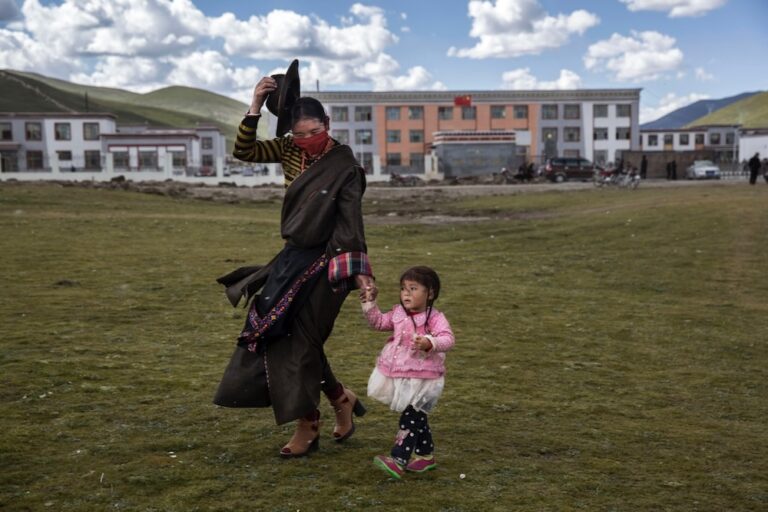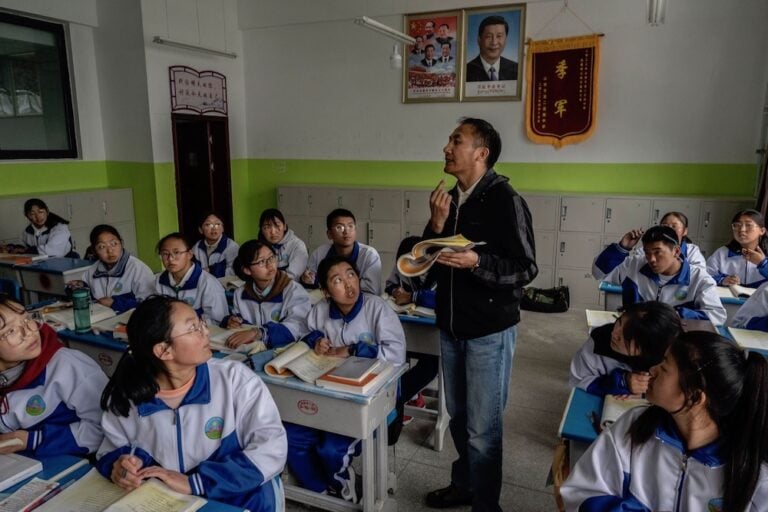(PEN/IFEX) – The following is a 29 October 2007 PEN American Center press release: China Releases Tibetan Monk from Prison After 18 Years: Ngawang Phulchung is 4th PEN Honorary Member Released This Year New York, New York, October 29, 2007 – PEN American Center today hailed the release of Ven. Ngawang Phulchung, a senior monk […]
(PEN/IFEX) – The following is a 29 October 2007 PEN American Center press release:
China Releases Tibetan Monk from Prison After 18 Years:
Ngawang Phulchung is 4th PEN Honorary Member Released This Year
New York, New York, October 29, 2007 – PEN American Center today hailed the release of Ven. Ngawang Phulchung, a senior monk of Drepung Monastery in the Tibetan capital of Lhasa, who was jailed in 1989 for publishing literature critical of the Chinese occupation of Tibet. The release came six months before his sentence was due to expire, and marked the end of one of the longest imprisonments of any political prisoner in Tibet. Ngawang Phulchung is an Honorary Member of PEN American Center.
“We are pleased and relieved that the Chinese government has taken the important step of releasing Ngawang Phulchung from prison, though of course under international law he should never have been there in the first place,” said Larry Siems, Director of the Freedom to Write and International Programs at PEN American Center. “We wish Ngawang well as he attempts to recover from his ordeal and rebuild his life, and we implore the government of China to release all other writers and journalists detained in China and the Tibet Autonomous Region simply for exercising their fundamental right of freedom of expression.”
Ngawang Phulchung is currently reported to be with his family in Toelung Dechen County, but is in very poor health due to torture and inhumane treatment he suffered in prison. During one publicized incident, he was beaten unconscious by Chinese army units after taking part in a protest against prisoner transfers on April 27, 1991. He was reportedly put in solitary confinement for six weeks following that incident.
Ngawang was one of the leaders of the Drepung printing group, also known as the “Group of Ten,” a publishing collective formed in early 1988 after peaceful demonstrations were violently suppressed by Chinese authorities on September 17, 1987. The publications of the group included a Tibetan translation of the Universal Declaration of Human Rights and a manifesto, “The Meaning of the Precious Democratic Constitution of Tibet,” which called for a democratic system based on Buddhist tradition. The group also produced pro-independence leaflets that were designed to be stuck on walls in Lhasa. One describes how Tibetans were shot dead by police in pro-independence demonstrations, and is considered unusual in that it presents a sober account of the event rather than exaggerating the details for propaganda purposes.
PEN remains concerned for Ngawang Phulchung’s health, for the continued imprisonment of dozens of other writers across China and the Tibet Autonomous Region, and on the state of media freedom in China in the lead-up to the 2008 Beijing Olympics ( see http://www.pen.org/viewmedia.php/prmMID/1642/prmID/172 ).
PEN American Center is the largest of the 141 centers of International PEN, the world’s oldest human rights organization and the oldest international literary organization. The Freedom to Write Program of PEN American Center works to protect the freedom of the written word wherever it is imperiled. It defends writers and journalists from all over the world who are imprisoned, threatened, persecuted, or attacked in the course of carrying out their profession. For more information on Ngawang Phulchung and PEN’s work to free another 45 writers who are currently imprisoned in China, please visit http://www.pen.org/caselist.pdf


